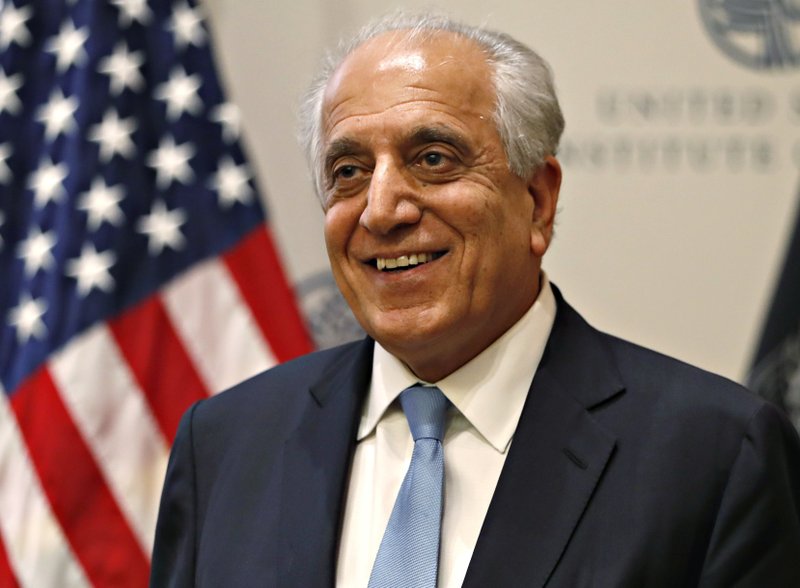The Taliban met with a U.S. envoy in the Pakistani capital, a Taliban official said Saturday, the first such encounter since President Donald Trump announced a month ago that a seemingly imminent peace deal to end Afghanistan’s 18-year war was dead.
The official offered few details of Friday’s meeting between peace envoy Zalmay Khalilzad and the Taliban delegation led by Mullah Abdul Ghani Baradar, a co-founder of the movement that was ousted in 2001 by the U.S.-led coalition. The official spoke on condition of anonymity because he was not authorized to speak to the news media.
U.S. officials have been keen to say peace talks haven’t resumed, at least not now in Islamabad. Still, the meeting is noteworthy as the United States seeks an exit from what has become its longest military engagement. More than 14,000 U.S. troops are still in Afghanistan and Trump has repeatedly expressed his frustration with their continued deployment, complaining they have taken on the duties of policing the country, a job he said the Afghan government needed to do.
Khalilzad has been in Islamabad for much of the week meeting with senior government officials in what the U.S. State Department described as follow-up meetings to those he held in New York during last month’s U.N. General Assembly session. At the time, he met Pakistani Prime Minister Imran Khan, who has been calling for a resumption of peace talks.
The Taliban delegation led by Mullah Baradar __one of its more powerful members __ arrived separately in the Pakistani capital for meetings with government officials that they said were being held to discuss a wide range of political issues relating to the more than 1.5 million Afghans still living as refugees in Pakistan.
Baradar was arrested in Pakistan in 2010 in a joint Pakistani-CIA operation after he secretly opened peace talks with then-Afghan President Hamid Karzai, a move that attempted to sideline Pakistan and went against U.S. policy, which did not support talks with the Taliban.
In 2018, Baradar was released from jail to facilitate peace talks after Khalilzad was appointed U.S. peace envoy.
During the past year, Khalilzad held nine rounds of talks with the Taliban in the Middle eastern State of Qatar, where the insurgents maintain a political office. In early September a deal seemed imminent, but a fresh round of violence and the death of a U.S. soldier caused Trump to suddenly tweet an end to talks and cancel an agreement-signing ceremony that had been planned for Camp David and about which few had been aware.
During the Doha talks, Khalilzad and Baradar held one-on-one meetings, and in recent weeks the Taliban had traveled to China, Russia and Iran to drum up support for a return to talks.
But in Afghanistan, the country is still awaiting the results of presidential polls held on Sept. 28.
The leading contenders are President Ashraf Ghani and his current partner in the unity government, Chief Executive Abdullah Abdullah.
Abdullah has already said he believes he has won, while Ghani’s supporters are declaring he has the necessary votes, causing many to fear political chaos. Preliminary results are not expected before Oct. 17 and final results until Nov. 7. If there is no clear winner with 51% of the vote, a second round will be held within two weeks of the final vote announcement.
(AP)











